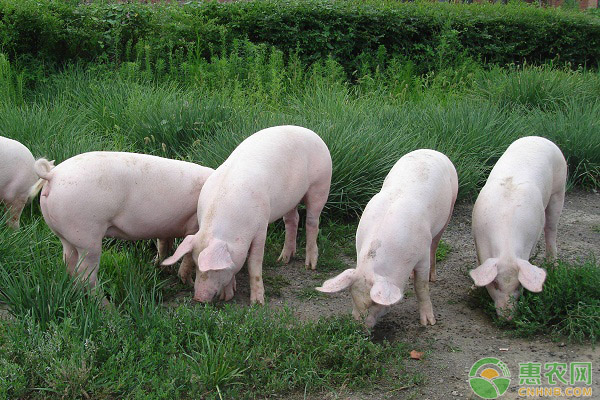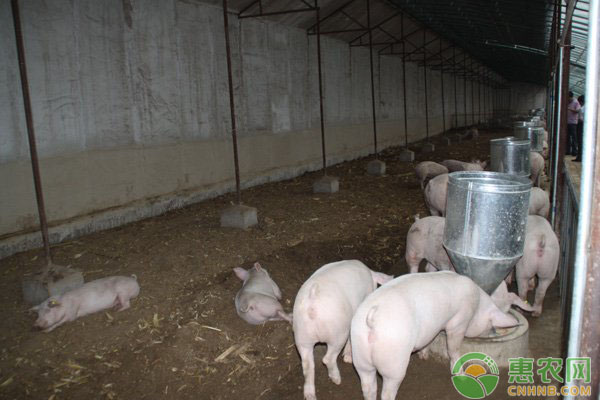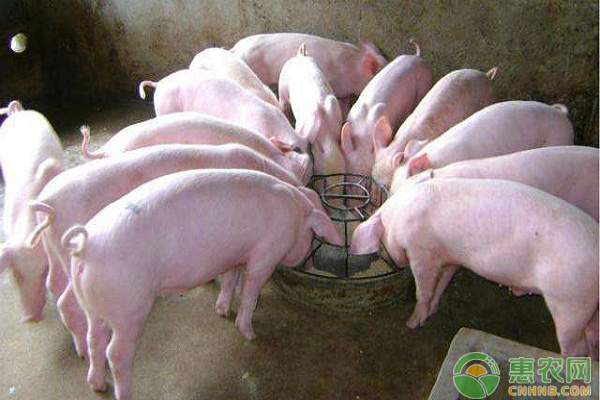Clinical application and contraindication of penicillin in raising pigs
The antibacterial spectrum of penicillin is Gram-positive bacteria, Gram-negative cocci, actinomycetes, spirochetes and certain protozoa, and is ineffective against mycoplasma, chlamydia, viruses and fungi. Penicillin has the following uses during pig raising:

1. Treating pig erysipelas
Porcine erysipelas is an acute, heat-borne disease caused by erysipelas. Acute pig erysipelas will show acute death. Subacute erysipelas will manifest as a purple-red diamond or square rash. Chronic erysipelas will manifest as non-suppurative arthritis and verrucous endocarditis.
Pig erysipelas treatment: individual severe pigs can be injected intravenously with large doses of penicillin, while intramuscular injection of conventional doses of penicillin, followed by intravenous injection, direct intramuscular injection of 2-3 times the dose, the pigs can be changed to regular doses after the symptoms are reduced, one day Twice until the symptoms completely disappear. The same group of pigs can be intramuscularly injected twice daily at regular doses for 3-4 days; it can also be prevented by adding sensitive Antibiotics such as amoxicillin and enrofloxacin to the feed.
2, prevent infection after surgery
The common surgical procedures for raising pigs include pigtail tailing, castration, caesarean section of sows, rectal prolapse and umbilical hernia of nursery pigs or finishing pigs. Penicillin powder can be sprinkled on the wound after surgery to prevent infection by common bacteria such as streptococci and staphylococcus.

3. Treatment of swine streptococcosis
Streptococcus is a high-risk disease in the nursery stage. After the onset, the sick pigs will show clinical symptoms such as acute death, joint swelling, falling to the ground, and strokes in the limbs.
a, acute septic type. The sick pig died in a short time without treatment time.
b, arthritis type. The sick pig can be intramuscularly injected with Houttuynia injection + penicillin G twice a day. At the same time, the swollen joints are cut in a "V" shape, and the joint cavity is cleaned with physiological saline, and then treated with penicillin powder.
c, encephalitis type. The sick pig was intramuscularly injected with Houttuynia injection + penicillin G, and intramuscularly injected with sulfadiazine sodium.
Incompatibility of penicillin
1, penicillin combined with aminoglycoside drugs have synergistic effects, but need to pay attention to the two can not be placed in the same needle in the mixed intramuscular injection, clinically can be intravenous injection of penicillin, aminoglycoside injection.
2, penicillin and oxytetracycline have incompatibility. Because penicillin is a Fungicide in the breeding season, and oxytetracycline is a bacteriostatic agent, the two together inhibit each other.
3, penicillin combined with sulfonamides have antagonistic effects, it is not recommended to use at the same time.
4, penicillin and florfenicol have antagonistic effects, because florfenicol will affect the bactericidal activity of penicillin, reducing drug efficacy.
5. Penicillin can not be combined with other antibiotics such as amoxicillin and ceftiofur.

The above is the application and contraindication of penicillin in raising pigs. It is said that penicillin has so many applications in raising pigs, but it is necessary to consult professional people when applying.
Dingmin Pharmaceutical supply Alogliptin API and Alogliptin Intermediates with high purity and best price. The main products CAS No are as follows: 850649-62-6, 4318-56-3, 865758-96-9. Sample can be sent if you request.
Welcome to do business with us. Please email to us directly.
Alogliptin Benzoate,Alogliptin Intermediates,Cas 865758-96-9
Shijiazhuang Dingmin pharmaceutical Sciences Co.,Ltd , https://www.dingminpharma.com